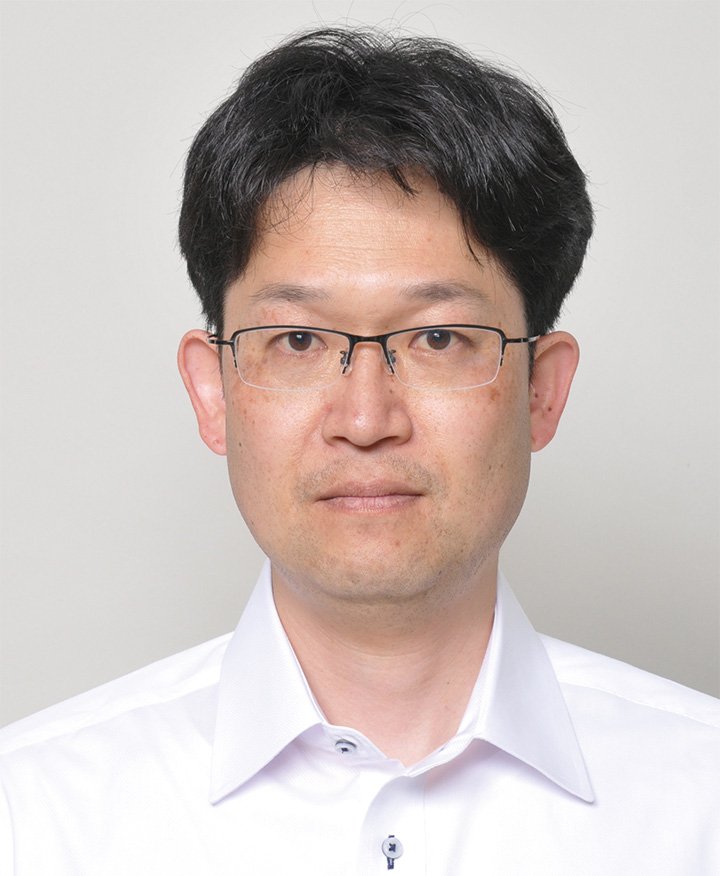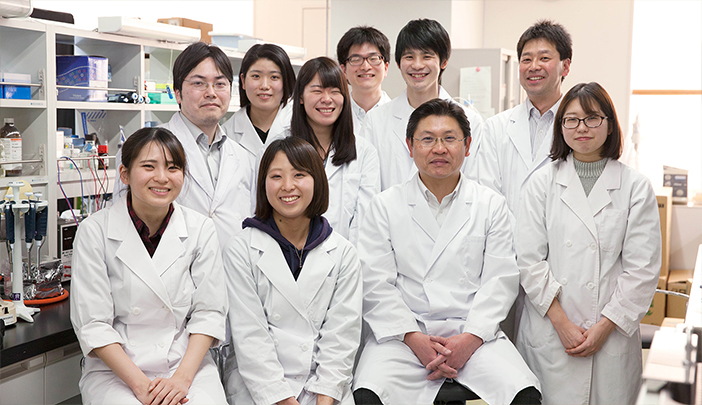 Researchers
Researchers
- HOME
- English
- Researchers
- INOSE Atsushi, Ph.D. / Associate Professor
INOSE Atsushi, Ph.D. / Associate Professor
Division of Microbiology and Molecular Cell Biology
Department of Pharmaceutical Sciences

Research Topics
1. Molecular mechanism of oxidative stress response in mammalian cell and bacteria
2. Regulation of NRF2 activation and heme oxygenase-1 expression
3. Molecular mechanism of oxidative stress response in Staphylococcus aureus
We are interested in environmental stress response in mammalian cells and bacteria. We are especially focused on the molecular mechanism of an oxidative stress response. We examine using techniques of molecular biology, biochemistry, cell biology, and microbiology.
Representative Publications
1. Yamazaki H., Kasai S., Mimura J., Ye P., Inose-Maruyama A., Tanji K., Wakabayashi K., Mizuno S., Sugiyama F., Takahashi S., Sato T., Ozaki T., Cavener D. R., Yamamoto M., Ken Itoh K., Ribosome binding protein GCN1 regulates the cell cycle and cell proliferation and is essential for the embryonic development of mice, PLoS Genetics, 16, e1008693 (2020).
2. Mimura J., Inose-Maruyama A., Taniuchi S., Kosaka K., Yoshida H., Yamazaki H., Kasai S., Harada N., Kaufman RJ., Oyadomari S., Itoh K., Concomitant Nrf2- and ATF4-activation by carnosic acid cooperatively induces expression of cytoprotective genes. International Journal of Molecular Sciences, 20, E1706 (2019).
3. Maruyama A., Mimura J., Itoh K. Non-coding RNA derived from the region adjacent to the human HO-1 E2 enhancer selectively regulates HO-1 gene induction by modulating Pol II binding. Nucleic Acids Research, 42, 13599-13614 (2014).
4. Ushijima Y., Ohniwa RL., Maruyama A., Saito S., Tanaka Y., Morikawa K. Nucleoid compaction by MrgAA sp56Ala/Glu60Ala does not contribute to staphylococcal cell survival against oxidative stress and phagocytic killing by macrophage. FEMS Microbiol Lett, 360, 144-151 (2014).

 JP
JP ACCESS
ACCESS SNS
SNS



 受験生の方へ
受験生の方へ 在学生の方へ
在学生の方へ 資料請求
資料請求 SNS
SNS ENGLISH
ENGLISH LMS
LMS 交通アクセス
交通アクセス 採用情報
採用情報
 お問い合わせ
お問い合わせ